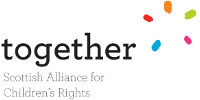
A One Planet Schools working group, chaired by Professor Peter Higgins from the University of Edinburgh, was established to provide strategic advice and direction to support the implementation of the manifesto commitment which states that:
“We welcome proposals for the creation of One Planet schools, and will look at ways of developing this concept. This will include action to continue the development of professional standards around sustainability education and leadership within our schools on environmental issues”.
Learning for Sustainability – the report of the One Planet Schools Working Group, was published on 17 December 2012. Learning for Sustainability has been defined by the Group as:
A whole school approach that enables the school and its wider community to build the values, attitudes, knowledge, skills and confidence needed to develop practices and take decisions which are compatible with a sustainable and equitable society”.
Scotland has a distinguished history and international reputation recognised by UNESCO and others for sustainable development education, global citizenship and outdoor learning, which are firmly embedded within Curriculum for Excellence. Learning for sustainability encompasses all of these themes and approaches and sets out recommendations to build on successful practice in Scotland. The approach being recommended complements the General Teaching Council Scotland’s new Professional Standards which affirm the importance of values and learning for sustainability.
Visit the SG One Planet Schools page.
Read the full Learning for Sustainability Report.
Read the Scottish Government Response to the LfS Report.
 Together is an alliance of Scottish children’s charities that works to improve the awareness, understanding and implementation of the United Nations Convention on the Rights of the Child (UNCRC).
Together is an alliance of Scottish children’s charities that works to improve the awareness, understanding and implementation of the United Nations Convention on the Rights of the Child (UNCRC).








